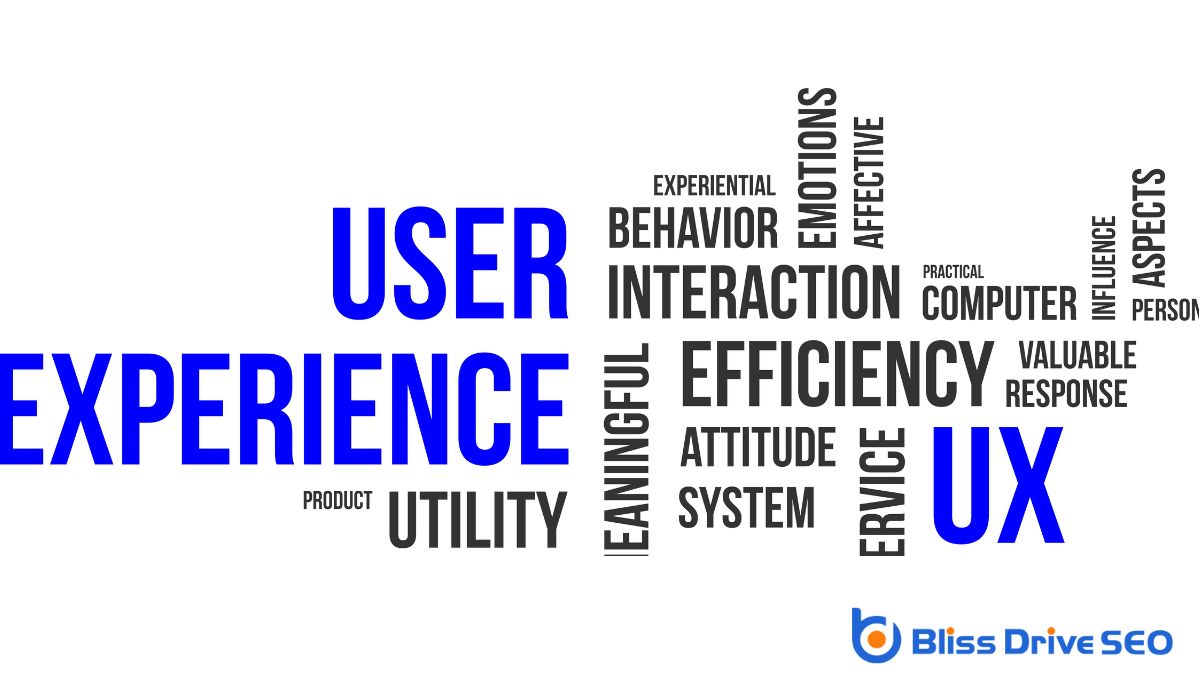Learn More About Us

To write SEO-optimized content, begin by grasping SEO fundamentals like relevance and authority. Employ keyword researchThe process of finding and analyzing search terms that people enter into search engines. techniques, concentrating on long-tail keywordsLonger, more specific keyword phrases that are less competitive and often more targeted. with suitable search volumes. Create captivating headlines by incorporating primary keywordsWords or phrases that users type into search engines to find information. organically. Organize your content with distinct headings and brief paragraphs to improve readability. Integrate internal and external links using descriptive anchor textThe clickable text in a hyperlink, important for SEO as it provides context for the linked page. for context. Don't underestimate the significance of meta tagsHTML tags that provide information about a web page to search engines and visitors., and confirm your writing stays clear and engaging to enhance user experience. Lastly, monitor performance with tools to fine-tune your strategy. Stick around because we're about to delve into these crucial elements in detail.
To grasp the fundamentals of SEO, start by familiarizing yourself with its core principles. Search Engine Optimization, or SEO, is all about enhancing your website's visibility on search engines like Google. You want your content to appear at the top of search results, so understanding what search engine value is is key. They prioritize relevance and authority, which means your content needs to be both useful and trustworthy.
When you write SEO-optimized content, consider how search engines evaluate pages. They use algorithms to determine which sites best answer user queries. You need to focus on crafting content that not only addresses the reader's needs but also aligns with these algorithms. This involves structuring your content effectively, ensuring it's easy to read and navigate.
SEO basics include understanding on-page factors like meta tags, title tags, and URLs. These elements help search engines understand your content's context and relevance. Use descriptive, clear titles and headings. Also, optimize images by using alt textDescriptions added to images to help search engines understand the content of images..

Keyword research forms the backbone of any successful SEO strategy. It helps you identify the terms your audience uses to search for content like yours. To get started, you need the right tools and techniques. Begin by brainstorming a list of words and phrases related to your topic. Then, use keyword research tools to expand and refine your list. These tools provide valuable insights such as search volume and competition level.
Consider the following techniques to enhance your keyword research process:
Understanding how to effectively research keywords sets the stage for creating content that resonates with your audience. Once you've got the right keywords, it's vital to craft engaging headlines that draw readers in. A captivating headline acts as a welcoming invitation to explore your content further.
Start by making your headline clear and specific. Let your readers know exactly what to expect, whether it's tips, insights, or solutions.
Use powerful words that evoke emotion or curiosity, like "incredible," "crucial," or "revealed." These can make your headline more alluring. Don't forget to keep it concise. Aim for around 60 characters to guarantee it displays properly in search results. Including a number in your headline can also enhance engagementThe interactions that users have with a brand’s content on social media.; it promises a structured and easy-to-digest format.
Make sure your primary keyword naturally fits into the headline without feeling coerced. This not only helps with SEO but also shows readers that your content is pertinent to their search.
Always test different headlines to see which ones perform best, and don't hesitate to adjust them for better results. Remember, a well-crafted headline is your first opportunity to make a lasting impressionWhen an ad is displayed on a user’s screen..
A well-structured piece of content isn't just easier to read; it greatly enhances your SEO efforts. By organizing your content effectively, you help search engines understand your page's hierarchy and context, which can leadA potential customer referred by an affiliate who has shown interest in the product or service but h... to better rankingsThe position at which a website appears in the SERP.. Start by ensuring that your content has a clear, logical flow. This makes your site user-friendly and encourages visitors to stay on your site longer.
To achieve an optimized structure, consider these key elements:
When writing high-quality content, focus on choosing engaging and relevant topics that capture your audience's interest.
Make sure your writing is clear and concise to keep readers engaged from start to finish.
Providing accurate and valuable information not only builds trust but also enhances your content's credibility.
Crafting engaging and relevant topics is essential for writing high-quality content that resonates with your audience and boosts your SEO efforts. It's not just about filling a page with words; it's about capturing interest and meeting the needs of your readers. To do this, focus on topics that speak directly to your audience's interests and challenges. Consider what questions they're asking and how you can provide valuable insights.
When brainstorming topics, keep these points in mind:
Delivering clear and concise writing is vital for producing high-quality content that keeps your audience engaged and informed. When you write, aim to get straight to the point. Avoid using unnecessary jargon or complex sentences that might confuse your readers. Instead, break down information into digestible parts, making it easier for them to grasp your message quickly. Remember, your audience values content that respects their time and intelligence.
Use straightforward language and active voice to make your content more direct and lively. Sentences should be structured simply, focusing on one idea at a time. This approach helps your readers follow along without getting lost in overly complicated phrasing.
Also, make sure your paragraphs are concise. Long-winded explanations can lose your reader's interest. Instead, focus on delivering information succinctly, ensuring each word serves a purpose.
Editing is vital. After writing, review your content to cut out redundancies and tighten your sentences. Look for opportunities to replace long phrases with shorter alternatives. By refining your writing, you enhance readability and keep your audience's attention.
Clear and concise content improves user experience and boosts your credibility as a knowledgeable source.
While clear and concise writing forms the backbone of engaging content, the real value lies in providing accurate and insightful information. Your readers seek trustworthy and reliable content that enriches their understanding. To achieve this, it's essential to conduct thorough research and verify your facts. Dive deep into credible sources and present data in a way that supports your narrative and adds value to your audience's knowledge.
Here's how you can safeguard your content remains accurate and valuable:
Incorporating a strategic mix of internal and external links into your content can significantly boost your SEO rankings and enhance user experience. Internal links help connect your content, guiding readers to other relevant pages on your site. This not only helps keep visitors engaged longer but also assists search engines in understanding your site's structure, making it simpler for them to crawl and index your pages.
When using external links, you're pointing readers to authoritative, credible sources that supplement your content. This builds trust with your audience and signals to search engines that your content is well-researched and valuable. However, make certain these links are relevant to your topic and lead to high-quality sites to maintain your credibility.
Use descriptive anchor text for both types of links. Instead of generic terms like "click here," use keywords or phrases that inform readers what to expect. This improves accessibility and helps search engines grasp the context of your links.
Limit the number of links to avoid overwhelming your readers. Concentrate on quality over quantity, making sure each link serves a clear purpose in enriching your content. By thoughtfully integrating links, you can enhance the value and reach of your content.
Meta tags play an important role in SEO by providing search engines with crucial information about your web page's content. They're like the signposts for your site, guiding search engines to understand and rank your content appropriately. If you want to enhance your SEO, you can't ignore meta tags. Here's why they matter:

Now that you understand the significance of meta tags in SEO let's focus on enhancing user experience, which is equally important for successful content. User experience, or UX, directly influences how visitors interact with your website. When users find your site easy to navigate and engaging, they're more likely to stay longer, explore further, and return in the future.
Start by securing your content is clear and concise. Avoid jargon and complex language—simple, direct communication is key. Use headings and subheadings to break up text, making it easier to read.
Bullet points and numbered lists can also help emphasize important information.
Don't underestimate the power of visuals. Images, videos, and infographicsVisual representations of information, data, or knowledge intended to present complex information qu... not only make your content more appealing but also help convey information quickly and effectively. Secure these elements are optimized for fast loading times, as slow pages can frustrate users and drive them away.
To ensure your content is achieving its intended goals, it's important to explore monitoring and analyzing performance. This step helps you understand what's working and where improvements are needed. Start by utilizing tools like Google AnalyticsA web analytics service offered by Google that tracks and reports website traffic. and Google Search ConsoleA tool by Google that helps monitor and maintain your site's presence in search results. to track key metrics. These platforms will give you insights into your audience's behavior and how your content is performing in search engines.
When you're analyzing, focus on:
To excel in writing SEO-optimized content, start by grasping the basics of SEO and conducting thorough keyword research. Craft engaging headlines that capture attention and optimize your content's structure for readability. Focus on producing high-quality content while strategically using internal and external links. Don't overlook the significance of meta tags. Enhance the user experience by ensuring your site is easy to navigate. Finally, regularly monitor and analyze your content's performance to make necessary adjustments for improvement.
